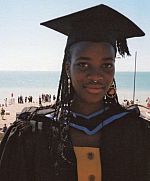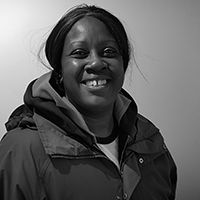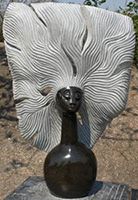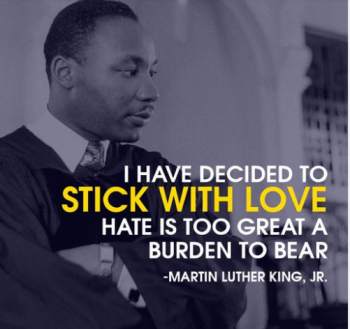Race Equality
The School of Education and Social Work recognises the importance of strengthening equality and inclusion and of promoting dignity, respect and a sense of belonging for people of all ethnicities, cultures and races. Our aim is to create safe spaces and provide opportunities to reflect on and discuss race and inequality, anti-racism, antisemitism, and the decolonisation of higher education collectively and collaboratively.
This page highlights some of our ongoing work to improve racial equality and to support ESW staff and students who have a wide range of heritages and are who are racially minoritised. We also seek to cultivate an inclusive culture that is conducive to openly discussing race-related issues and challenging racism.
If you haven't seen it already, pop by Essex House reception to see our Black History Month 2023 showcase promoting Black Britons who have shaped the country thorugh history and, at the end of October, a celebration of our own Black and Asian staff and researchers.
- Terminology
-
The language used to talk about race equality is continually evolving. For example, the term BAME - which stands for Black, Asian and Minority Ethnic - is often used in higher education institutions but is highly contested.
For some, BAME is considered as a homogenising term which does not appreciate the varied historical and lived experiences of those who have a wide range of heritages and are racially minoritised. Others find it helpful in specific contexts. Check out this useful introduction to these debates and issues.
In recognition of the issue, we take a flexible approach to the term's use in ESW. Official data reporting processes, such as that set up by the Higher Education Statistics Authority (HESA) and wider University projects, require the term BAME. Therefore, it will still be present in some of our communications and practices.
ESW colleagues are, however, encouraged to avoid using the term BAME as a ‘catch all’, replacing it with ‘racially minoritised groups’ as a more appropriate descriptor which highlights the reasons we are making claims about a group of people. However, best practice is to be specific where issues pertain to Black, Asian, or other ethnic groups, rather than using generalised labels. Where possible, the disaggregation of data should be aimed for.
- Racialised Academics / Minoritised Ethnicities Network
-
This network is for ESW staff and doctoral researchers defining themselves as of Racialised and Minoritised ethnicities. It is a group to share experiences and to take actions. The Co-Chairs of the group, Fezile Sibanda and Dr Tam Cane, meet termly with the EDI Directors and the Head of School to feedback and shape ESW policy and practice.
Contact Fezile and Tam to find out more.
- Race Equality Action Plan
-
The School of Education and Social Work is serious about the need for ongoing work from all members of the school community to address racism and race equality in higher education.
As a School, we have committed to the ESW Race Equality Action Plan [PDF 83.67KB] which contains our vision for change alongside a series of ongoing actions that we will update in order to be responsive to ideas emerging with and from our school community. This is intended to be a working document and staff are encouraged to contact Co-Director of Equality, Diversity and Inclusion, Emily Danvers, with any comments, questions, suggested amendments or any other matter related to it that they wish to discuss.
- Antisemitism
-
Anti-racism activity in ESW can include Jewish people as one of our ethnic minority communities and the school uses the Equalities Act 2010 as a point of reference.
As a school, we recognise that racialisation can occur due to colour, nationality (including citizenship) and can happen to all minoritised ethnic groups. This can include Jewish people, irrespective of their colour or nationality, as they belong to an ethnoreligious group. While there may be important commonalities for groups experiencing oppression and hatred, there are also distinctive forms, histories and societal and political driving factors that shape specific discriminations and experiences of racism.
We have ongoing work to do in ESW to support work in this area, and further training and activity will follow. The University has a Jewish Chaplain who can offer guidance as well as an ethnic minority network for staff.
- ESW Anti-Racism Resources
-
The ESW Equality, Diversity and Inclusion (EDI) committee have created a Padlet as a living document for staff and students to add resources and reading recommendations to refer to as a support to aid developing anti-racism in teaching and learning. Please add to it with resources and ideas of your own and let us know if and how it has been useful for you.
Racial Microaggressions
Rebbecca Hemmings from Strawberry Words provided this helpful Antiracism reading list as part of her presentation and Q&A at a whole-school meeting on 18 November 2021 for the School of Education and Social Work.
- University-level Support and Resources
-
BAME Staff Network
The University's BAME Staff Network is for all staff who define themselves as belonging to a minority ethnic group. If you would like to join the network to receive notification of meetings and events you can find out more by emailing BAME-Staff@sussex.ac.uk.
BAME Student Support
The Student Life Centre have created a resource page to support BAME students. They also offer 'Race and culture support sessions' for students wanting to share thoughts and concerns - whether in relation to their experiences as a BME student, or any other matter. See their information page to book.
- Educational Resources
-
Here is a collection of resources/readings we have collated if you wish to read.
Asians in Britain is a free learning resource aimed at students and the general public that has been produced in partnership with 'Beyond the Frame: Indian British Connections', a research project led by The Open University and funded by the AHRC.
Black British History at the Institute of Commonwealth Studies fosters creative dialogue between researchers, educationalists (mainstream and supplementary), archivists and curators, and policy-makers.
History Lessons Project by the Runnymede Trust attempts to deal with the question of 'who gets included in the story?'. You can access video content, a perspective paper, and teaching resources from the project, in addition to many other useful educational resources.
Jeffrey Green, Historian, founded his website in 2009 - in part as a response to what he regarded as ill-founded articles on history, and also to make available images and documents that he had been accumulating since the late 1970s. In late 2014, the site invited contributors and this facility still interests people. Jeffrey's website is a valuable resource for those looking into Black history and includes images, biographies and much more.
The Making Britain database was created to provide access to a wealth of material about the South Asian presence in Britain from 1870 to 1950, including information about organisational involvement, their British connections, and details of major events.
The Making Histories website is an exciting collection of fascinating family histories and migration stories documented by young people in Cardiff, Leicester and Sheffield which has been created by the Runnymede Trust and the London School of Economics. You can hear incredible oral history interviews exploring journeys to Britain from parts of Europe, India, Africa, the Caribbean and beyond. Stories range from escaping a volcanic eruption in the Caribbean island of Montserrat to being recruited from Zambia to work in the NHS. These deeply personal stories will make you think about history in a completely new way.
The Understanding and Celebrating Our Roots project by the Granby Somali Women’s Group investigates the relationship between Britain and Somaliland during the period of colonisation and the impact the British had during this period. The project aims to capture stories about this period and and preserve them through oral traditions.
- TED Talks on Achieving Racial and Gender Equality
- Inspirational Poetry
-
Caged Bird by Maya Angelou
Celebrating Our Roots
 Fezile Sibanda
Fezile Sibanda
I am Ndebele/Zimbabwean and have spent most of my life living in Southend, Essex. My southern african heritage has informed my interest in coloniality and how it impacts knowledge and understanding of racialised groups.
I studied (BA) Education at the University of Brighton where I was first introduced to scholars such as Frantz Fanon and Edward Said and became deeply interested in ‘postcolonialism’ which later developed into a interest in (de)coloniality. During my time studying MA Social Justice and Education at UCL, Institute of Education I looked at western imperialism in the academy. While at university I also noticed a lack of people of colour, especially when looking at academics. As I wanted to pursue a career in academia I decided to dedicate my scholarship to examining the persisting inequalities faced by racialised academics in British institutions.
My PhD topic has been informed by each of my academic experiences and my own identity. I will be focusing on the notion of coloinality within British academia, in relation to black academics working in higher education institutions.
Outside of my academic work, I am interested in climate and social justice and often attend events in aid of these causes. My other passions include reading, crocheting and music (particularly soul, jazz and UK underground hip-hop). I am excited to be part of Sussex’s race equality community as a Black Ndebele/Zimbabwean Women with a lovely Essex accent
 Donna Comerford
Donna Comerford
I'm Afro-Guyanese British, born and raised in the UK. With the luxury of reflection, I can claim myself a lifelong learner. Growing up in the UK in the 1970s was a challenge with the pull of two different cultures. I had an insatiable thirst for knowledge as a young child and had read through the Watford children's library by age 13.
I began studying with the Open University in the 90s and have been hooked ever since! I used OU credits to enter De Montfort University in 1997 graduating with a BSc Hons. in Information Systems with Management in 2001. I undertook a PGCE (Initial Teacher Education) in 2001 and began my first teaching job in 2002. In 2010, I started to mix formal and informal education with the local digital industry in Brighton and also nationally.
In 2016, I recommenced studies with the Open University, graduating in July 2020 with an MSc in Technology Management. I had been thinking about whether I could do a PhD for a couple of years, but it seemed like something totally out of my reach. However, when I took very early retirement and a trip around the world, focusing on nothing but my final two OU modules, I began to consider the (im)possible - especially as my grades were very good when I wasn't juggling a million other things. I decided ultimately to apply for a PhD in International Education at the University of Sussex. I've been on my doctoral journey since September 2020 with the research theme: "What is the role of education during internal displacement: Perspectives of a rural community in Fiji".
Tam Cane
I am a British-Black-Shona-African academic, educated in private schools who progressed through university education and obtained my PhD at the University of Surrey in 2015. My work focuses on equality and the inclusion of people living with HIV and looking at the intersections of various identities. I am delighted to be involved in multiple projects and activities to address the inequalities experienced by ethnic minority students and social work clients. See my recent educational animated video. I am thrilled to be taking part in this celebration of our roots.




